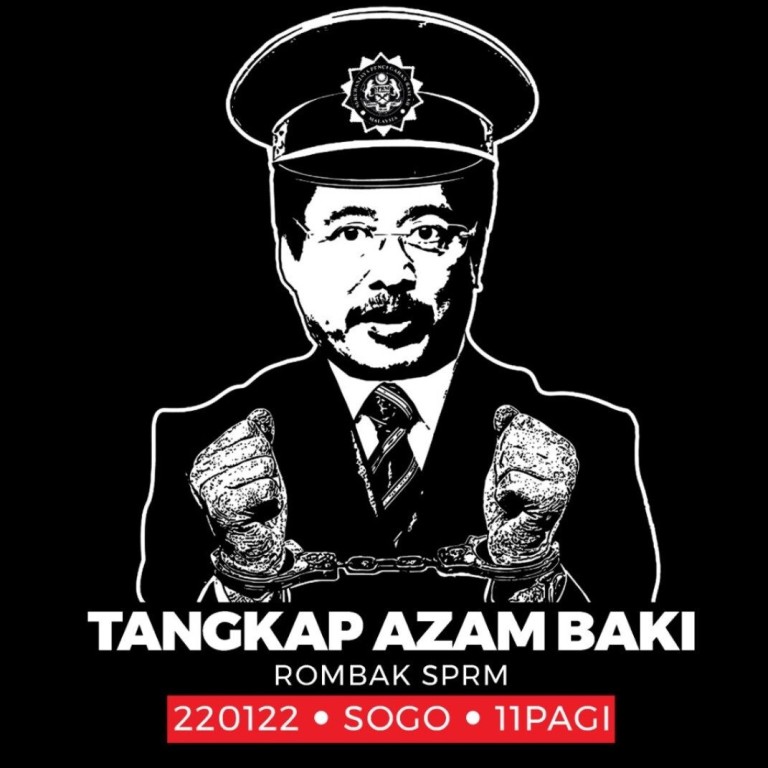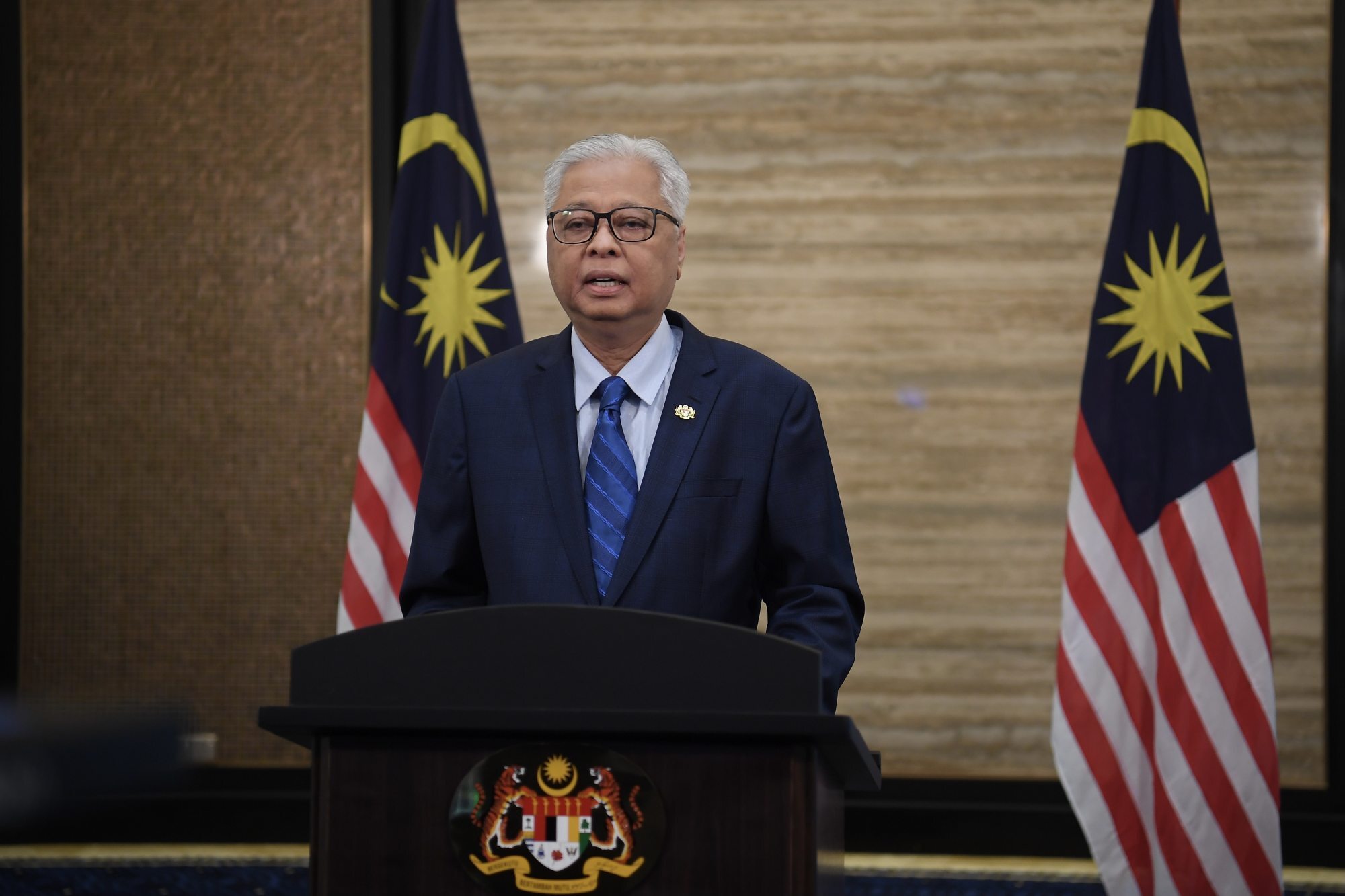
Police to seal off Kuala Lumpur to head off mass rally against Malaysian anti-graft chief
- Major roads to be blocked and metro services suspended in bid to prevent a protest demanding resignation of MACC chief Azam Baki over a share-trading controversy
- Police say the planned rally is ‘clearly against the law’ and contravenes Covid rules, but their response has been lampooned on social media
Malaysian police have said they will seal off major thoroughfares and suspend services in 24 metro stations around downtown Kuala Lumpur on Saturday to prevent a mass rally against the country’s under-fire anti-graft chief, with officials warning the demonstration is “against the law”.
Civil society groups and the youth wings of major opposition parties had planned a protest at 11am on Saturday to call for the immediate resignation of Azam Baki, the chief commissioner of the Malaysian Anti-Corruption Commission, over a recent share-trading controversy.
Social media had earlier on Friday been abuzz with speculation about the near-total shutdown of Kuala Lumpur to prevent the rally. More than 1,000 police are to be deployed to enforce the measures.
Mass demonstrations are legal – if advance notice is given to the police – and have been quite common in Malaysia in recent years, though authorities have barred gatherings since the start of the Covid-19 pandemic.
Noor Dellhan Yahaya, the police chief of Kuala Lumpur’s Dang Wangi district, said in a press conference that the planned assembly was “clearly against the law” as authorities had not received notice from any individual or group under the Peaceful Assembly Act.

He said police had obtained court orders barring gatherings at the Sogo shopping centre – the starting point of the rally – as well as the nearby Jamek Mosque and Merdeka Square. Sixteen people, including five from political parties, had been called to provide statements over their role in organising the event.
“Police advise the public not to participate in any illegal activities that are against the law and the SOPs that are in force,” Noor Dellhan said.
“This is to maintain peace and safety. Everyone needs to understand how important it is for us to abide by the [Covid recovery plan]”.
He added: “We sternly state that we will not compromise with anyone that is still stubborn and wishes to join any assembly and we will take stern action.”
On social media, the virtual sealing off of Kuala Lumpur, the country’s main commercial and cultural hub, was lampooned. Most commenters slammed the authorities for the severe reaction to the protest, saying it inconvenienced even those who did not plan to attend the rally.
‘Like Najib’s 1MDB playbook’: Malaysian graft-buster ridiculed in stock saga
“Instead of letting people gather peacefully for a logical reason, the government chose to make it hard on everyone, including those with no intention to join,” said Twitter user Nowtnatrah.
The plan for Saturday’s demonstration came amid rising concern among government critics that Prime Minister Ismail Sabri is turning a blind eye towards the controversy surrounding Azam, the nation’s top graft-buster.
The 58-year-old has been under the spotlight since a whistleblower in December revealed that he owned shares in two companies that breached civil service rules that bar officials from owning more than 100,000 ringgit (US$24,000) in any company.
Faced with public questioning, Azam on January 5 said his brother had purchased the shares in question with his trading account.

This week, the Securities Commission – the country’s capital markets regulator – said it found that he had been responsible for the trades actioned on his account. That contradicted Azam’s account of events.
Still, there has been no indication from the government that it plans to investigate Azam for possibly breaching the civil service code of conduct, and Prime Minister Ismail Sabri on Wednesday sought to suggest the securities regulator’s findings had in fact exonerated the MACC chief.
Azam, for his part, has insisted he is being targeted as part of a “political revenge” campaign, and says he committed no wrongdoing.
Case against Malaysia’s anti-graft chief ‘inconclusive’, probe finds
He has launched a libel suit against the whistleblower, Lalitha Kunaratnam, over her reports.

